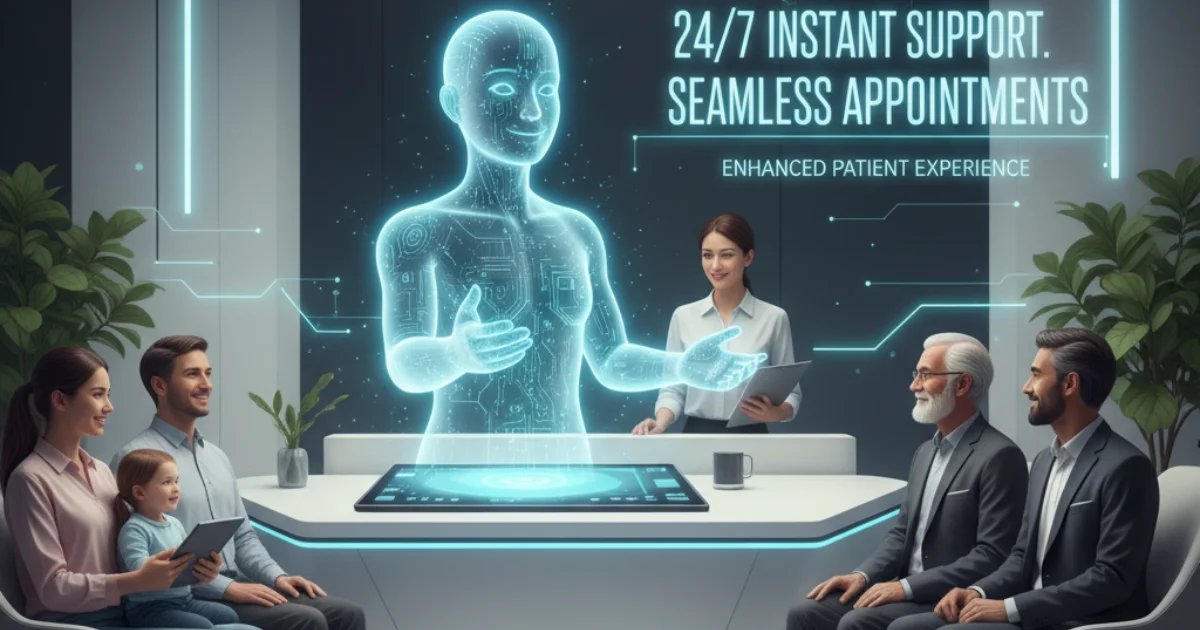Why Every Healthcare Practice Needs an AI Medical Receptionist Today

Discover how an AI Medical Receptionist is transforming healthcare practices by automating scheduling, patient communication, and insurance verification — improving efficiency, reducing costs, and enhancing patient satisfaction with 24/7 intelligent support.
An AI Medical Receptionist is an advanced artificial intelligence system designed to handle administrative and communication tasks traditionally managed by human receptionists in healthcare settings. This technology provides 24/7 support, handling appointment scheduling, patient inquiries, reminders, and insurance verification efficiently and with high accuracy. Its integration helps healthcare practices optimize workflows, improve patient satisfaction, and reduce administrative costs.
What is an AI Medical Receptionist?
An AI Medical Receptionist leverages AI, machine learning, and natural language processing to mimic human interactions in managing tasks such as booking, rescheduling, or canceling appointments, answering patient inquiries, sending automated reminders, and verifying insurance. Unlike traditional receptionists, AI systems operate without breaks, ensuring constant availability and seamless communication through various channels like phone, email, and chat.
Key Functions of an AI Medical Receptionist
- Appointment Scheduling : Real-time booking, rescheduling, and cancellation.
- Patient Communication : Automated reminders and answers to routine questions.
- Inquiry Management : Instant, accurate responses to common patient inquiries.
- Insurance Verification : Checking patient insurance details ahead of appointments.
- Multi-channel Interaction : Phone, SMS, email, chat, with personalization and multilingual support.
Benefits of Using an AI Medical Receptionist
- Cost Efficiency : Reduces costs related to salaries, benefits, and overtime by automating routine tasks.
- Increased Efficiency : Automates scheduling and data entry with high accuracy, reducing human error and freeing staff for critical care.
- Enhanced Patient Experience : Offers 24/7 support, reduces wait times, personalizes interactions, and supports multiple languages.
- Scalability: Easily adapts to increasing patient volumes and operational demands without added overhead.
- Data Management : Improves accuracy and compliance by securely handling patient data and generating performance analytics.
Real-Life Success Stories of Virtual Receptionist Integration
- City General Hospital reduced call return times from hours to under half an hour and cut missed appointments by 20%.
- Community Care Clinic lowered waiting room times by 25%, reduced operating costs by 18%, and increased on-time appointments by 35%.
- Dr. James WilsoReal-Life Success Stories of Virtual Receptionist Integration
- reported over 80% of routine calls handled automatically by AI, allowing staff to focus on complex patient needs.
Challenges of Implementing Virtual Receptionist Integration
- Integration Difficulties : Many healthcare systems use legacy software incompatible with modern AI, requiring costly and time-consuming upgrades.
- Staff Resistance : Fears about job security and changes in responsibility can hinder adoption.
- Data Privacy and Compliance : Handling sensitive healthcare data must meet strict regulations like HIPAA, necessitating secure, encrypted connections.
- Risk of Depersonalization : AI interactions can feel impersonal; balancing automation with human touch is critical.
- System Errors and Biases : Continuous auditing and ethical AI development are necessary to mitigate algorithmic bias and errors.
The Future of Virtual Receptionist Integration in Healthcare
Future advancements will include multimodal communication (phone, chat, video), voice-enabled AI with natural conversations, emotional intelligence capable of detecting patient emotions, and hybrid models combining AI efficiency with human empathy. Generative AI will enhance personalized responses, predictive intent recognition will anticipate patient needs, and AI-human collaboration will deliver seamless and highly responsive service, further transforming patient engagement and operational efficiency.
This comprehensive approach shows why integrating an AI Medical Receptionist is essential for modern healthcare practices aiming to improve efficiency, patient satisfaction, and cost management while preparing for the future of healthcare delivery systems.
